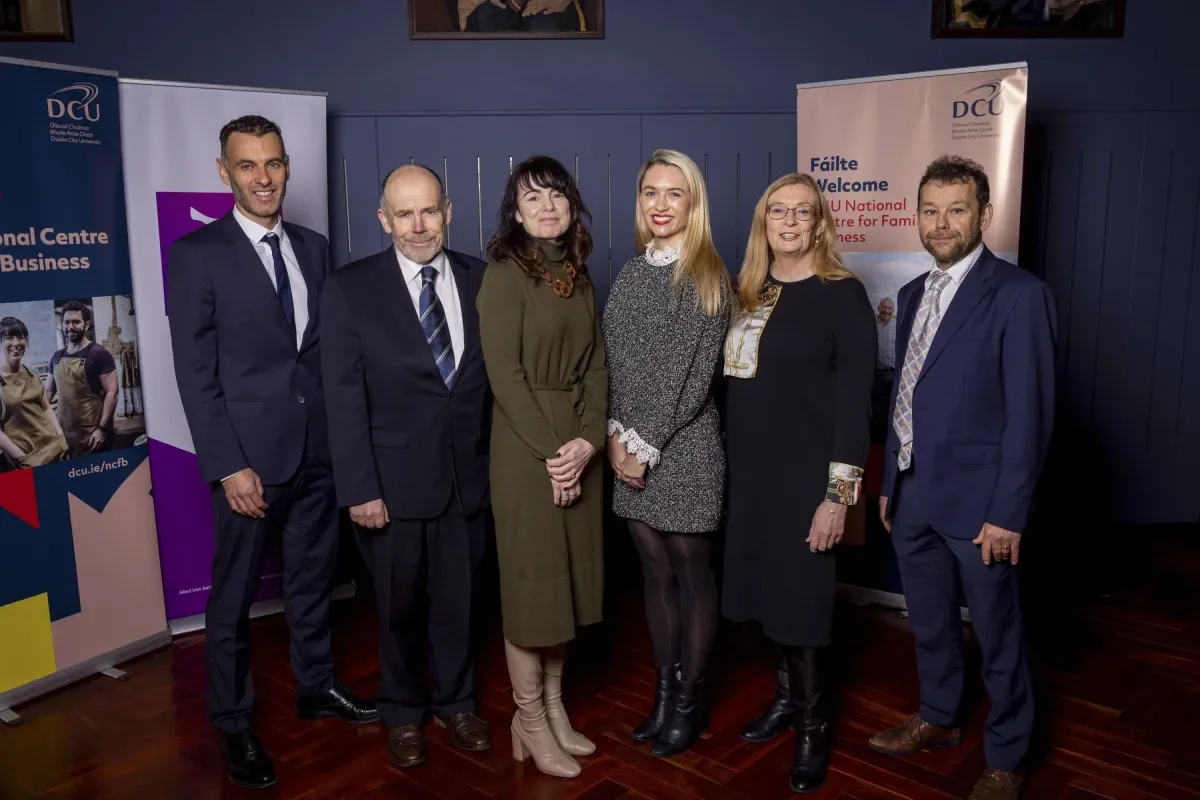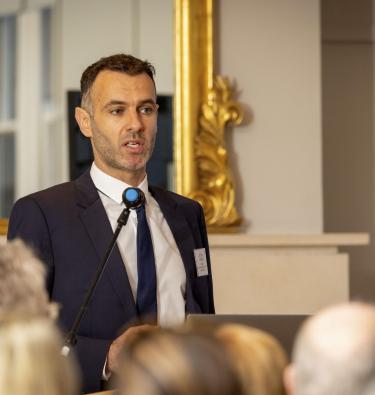
The DCU National Centre for Family Business has spent over a decade producing rigorous and relevant research on family businesses, which accounted for over 64% of businesses in Ireland. In the Republic of Ireland, family businesses employ more than 938,000 people, representing 37% of employed people nationally. In Northern Ireland, family businesses account for over 70% of all firms, employing 284,000 people. The Centre consistently delivers research readily translatable into evidence based insights for practitioners. Through engaging over 1500 family businesses and research teams from top international business schools, the centre has built a comprehensive body of research.
The centre has several key research themes:
- Transgenerational learning: investigating how family firms can successfully nurture the transmission of entrepreneurial behaviours and mindsets across generations.
- Trust and feeling trusted in the family business: integrating the organisational trust and family firm literature of trusting and feeling trusted in family firms.
- Gender and family business: investigating women's progress and challenges in multiple facets of family business, including human capital, succession, entrepreneurial entry, and career dynamics.
- Legacy and tradition: exploring legacy transmission in multi-generational family firms, includes managing ‘legacy liability’ and exploring how family firms can reframe legacies that are no longer fit for purpose.
The centre was founded in 2013 by then DCU President Prof Brian MacCraith, then Taoiseach Enda Kenny, Dr Dermot McAleese and Director Eric Clinton. Having recruited its first PhD scholars and begun its practitioner research programme, the first top publications came in 2017 in journals such as Family Business Review and Entrepreneurship Theory & Practice, greatly burnishing the reputation of the new research centre. In the following fours years, the centre welcomed its first postdoctoral researchers and established a scientific committee of leading experts to guide its research programme.
Consistently, demonstrating its commitment to practical research output, the centre has produced a series of practitioner reports in collaboration with Ulster University, the University of Central Florida, the Northern Irish Family Business forum, and Allied Irish Bank, from whom the centre has also received significant funding. In 2022, the centre collaborated on “Surviving a Crisis as a Family Business” which charted the progress of family businesses during the Covid pandemic through input from 53 CEOs and 198 employees. The report gave an in depth picture of the landscape, and made eight practical recommendations for firms facing difficulties. Following the commencement of the study, the centre formerly partnered with Ulster University and the National Forum for Family Business in 2021.
Having emerged from the pandemic, the centre hosted an ambitious annual conference event at the Helix on DCU’s Glasnevin campus in October 2022. The theme for the event was Continuity through Regeneration and Resilience, bringing together speakers such as Glenisk managing director Vincent Cleary, and AIB managing director of Retail & SME Jim O’Keefe. Since then the centre has gone on to host and play a key part in a series of high profile research events, such as the STEP Global Summit where Dr Eric Clinton co-led the junior faculty element of the conference. The National Centre for Family Business is the Irish partner in the STEP Consortium, a project which connects academics and family business experts worldwide to report on entrepreneurship practices within family businesses.
On November 25th and 26th last year, Ulster University Business School's Centre for Sustainable Family Enterprise and the National Centre for Family Business hosted the inaugural All-Ireland Family Business Research Network conference. The event brought together researchers from across Ireland and internationally providing opportunities for networking and exchanging theory, ideas and personal experiences related to family businesses.
Following a report detailing the centre's achievements on its ten year anniversary in 2023, the centre published another ambitious report on succession intentions of next-generation family members. The huge study recruited 375 university students, the next generation members of family businesses, studying principally at DCU, Ulster University, University of Limerick and UCC. The report analysed their insights against 7 themes including succession intentions, attachment and commitment, and family preservation. Once again the report identified key remedies to obstacles next generation members may face when looking to enter the family business.
In addition to the reports, the centre has regularly published articles in leading journals. Earlier this year, Dr Eric Clinton and Dr Catherine Faherty have published an in depth analysis of the effect of CEO gender on family business’ corporate social responsibility score. Drawing on a sample of 1555 firms from 29 countries from a STEP’s international database, Clinton and Faherty drew the conclusion that female CEOs did outperform their male counterparts in both internal matters such as diversity and inclusion and external CSR issues such as climate compliance. However, having a female CEO in place doesn’t automatically improve CSR without the right institutional conditions. As ever, the paper makes practical observations to inform hiring and leaderships decisions for family firms.
The centre is now one of four primary thematic research programmes forming part of the newly established DCU Institute for Business and Society. The new institute seeks to support and provide a platform for DCU Business School’s key research centres, groups and networks.








